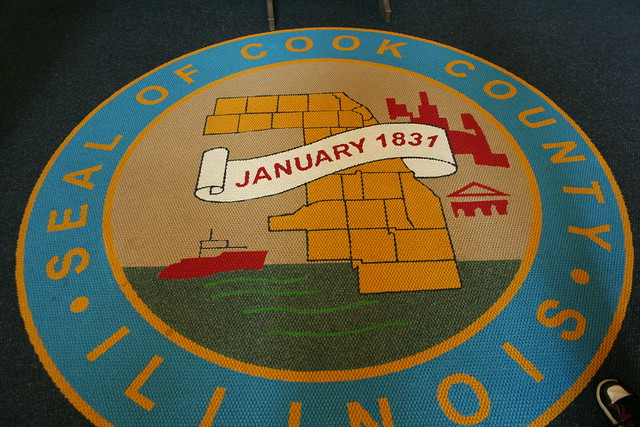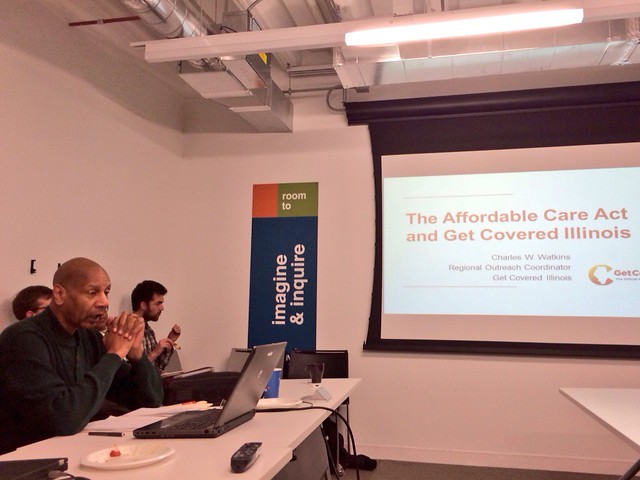For the past few Tuesdays, we’ve excerpting sections from Beyond Transparency: Open Data and the Future of Civic Innovation“, an anthology edited by Brett Goldstein with Lauren Dyson and published by Code for America.
I wrote a chapter titled, “Building a Smarter Chicago“, which I call “an illustrative, incomplete, and idiosyncratic look at the ecosystem in Chicago. It is meant to provide a thumbnail take on how the ecosystem developed here, while sparking fires elsewhere”. Here’s the third section, which covers our long history of civic activism:
Developers: Civic Activism
Every city has its own history and its own approach to the world, and I think that is expressed in its technological history as well. Chicago has been a center of civic activism and individual public creativity for decades.
It can be traced as far back as Jane Addams, who created the Hull House in 1889. It was the first “settlement house,” cooperative residences for middle-class “settlers” in predominantly immigrant neighborhoods that aimed to reduce inequality in urban areas (Wade, 2004). She was also a tireless scholar who studied the geographical distribution of typhoid fever and found that it was the working poor who suffered most from the illness.
Chicago is the place where the drive for common standards, like the eight-hour workday, was fought (Jentz, n.d.). It was a center for the battle against mortgage redlining (the practice of denying or raising prices for mortgages that has played a role in the decay of cities). Activists used data to understand the predicament and prove their case.
The General Transit Feed Specification (GTFS) is a recent national example of success in putting civic data to use for the public good. Everyone loves CTA bus tracker apps, but few people know that the installation of the GPS satellite technology making that possible is the result of a lawsuit brought by a group associated with the Americans Disabled for Accessible Public Transit (Chicago Transit Authority, n.d.). Their case, Access Living et al. v. Chicago Transit Authority, required “installation of audio-visual equipment on buses to announce bus stop information to riders who have visual impairments or are deaf or hard of hearing” (Equip for Equality, n.d.). When you hear the loudspeaker system announce the next street where the bus is stopping, you have de facto data activists to thank.
This is the place where saxophonists rise from the stage, blare out a ten-minute solo, and calmly fade back into the band. It’s the place where slam poetry was conceived—individual poets audaciously grabbing the mic for three minutes and getting judged by the crowd. It’s also where improv comedy—with its focus on ensemble and fast thinking—was invented.
These are threads for us in the civic innovation movement here in Chicago. I believe they’re embedded in the work. They form examples for us to follow—the quiet humility of the worker in the crowd, the developer among the people.
You can find recitations of particular apps using specific datasets anywhere. Just remember that every city has unique cultural and technological histories. This is the essence of an ecosystem, and it’s why they are local.
It’s one thing to recognize history and another to build a local movement from it. Here are some of the entities that have helped form and accelerate the work:
- Illinois Data Exchange Affiliates was an early-incarnation open data group that led the way (Illinois Data Exchange Affiliates, 2007).
- Independent Government Observers Task Force was a 2008 non-conference, where many of the leaders of the movement worked together (Independent Government Observers Task Force, 2008).
- Open Government Chicago(-land) is a meetup group started by Joe Germuska (Open Government Chicago(-land), 2013).
- Open Gov Hack Nights are weekly meetings that have been critical to accelerating the pace of development (Open Gov Hack Night, n.d.).
- Digital.CityofChicago.org is a publication at the center of city policy and examples (“Release All the Data,” 2013).



